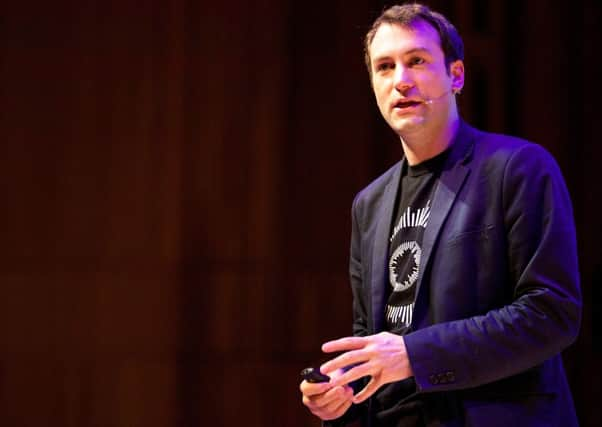How Big Tech is monopolising the digital age, amassing power and wealth – Catherine Stihler


Our society is at a crossroads and faces two different and distinct futures: one which is open and one which is closed.
A closed future is one where knowledge is exclusively owned and controlled, leading to greater inequality.
Advertisement
Hide AdAdvertisement
Hide AdAlready, large unaccountable technology companies have monopolised the digital age, and an unsustainable concentration of wealth and power has led to stunted growth and lost opportunities. When that happens it is consumers, future innovators and society that loses out.
In 2016, the eight richest people in the world had as much money as the bottom 50 per cent of humanity.
Political earthquakes around the world and the rise of populism have led to a more authoritarian approach, with basic facts openly queried.
There are fears about the misuse of personal data, as witnessed in the WhatsApp security breach, with owner Facebook rightly facing questions about how this could happen.
It is worth remembering that Facebook paid $22 billion for WhatsApp in 2014 when its sales were just $10 million – a clear sign it did so to protect its monopoly status, which in turn leads to lost innovation and stunted competition.
We have already started on the path towards a closed society, and without urgent action we will find ourselves in a world of extraordinary and growing concentrations in power and wealth, with innovation held back and distorted by monopolies, essential medicines affordable only to the rich, and freedoms threatened by manipulation, exclusion and exploitation.
Just look at the new EU-wide copyright crackdown due to come into effect, which would restrict the sharing of academic research and creativity on the internet.
When we restrict freedom of speech and expression online, we are building a more closed society.
But this doesn’t have to be our future.
Advertisement
Hide AdAdvertisement
Hide AdFifteen years ago this week, the Open Knowledge Foundation was launched in Cambridge by entrepreneur and economist Rufus Pollock.
At the time, open data was an entirely new concept. Worldwide internet users were barely above the 10 per cent mark, and Facebook was still in its infancy: a plaything for Mark Zuckerberg and his friends at college.
But Rufus foresaw both the massive potential and the huge risks of the modern digital age. He believed in access to information for everyone about how we live, what we consume, and who we are – for example, how our tax money gets spent, what’s in the food we eat or the medicines we take, and where the energy comes from to power our cities.
As we celebrate our 15th anniversary, we recognise it is time for new rules for this new digital world.
So we have decided to refocus our efforts on why we were created in 2004, “to promote the openness of all forms of knowledge”.
Our vision is for a future that is fair, free and open. That will be our guiding principle in everything we do.
Our mission is to create a more open world – a world where all non-personal information is open, free for everyone to use, build on and share; and creators and innovators are fairly recognised and rewarded.
We want to see enlightened societies around the world, where everyone has access to key information and the ability to use it to understand and shape their lives; where powerful institutions are comprehensible and accountable; and where vital research information that can help us tackle challenges such as poverty and climate change is available to all.
Advertisement
Hide AdAdvertisement
Hide AdOur work will focus on health, where access to medicines requires new thinking, and on education, where the new EU-wide copyright law impacts on both academic research and on people’s ability to access knowledge.
We will also concentrate on employment, including tackling the growing inequality from working patterns and conditions, and the ability for creators and innovators to be fairly compensated.
This reaches to the heart of a fair, free and open future where there is opportunity for all.
With inequality rising, never before has our vision of a fair, free and open future been so important to realise our mission of an open world in complex times.
Catherine Stihler is chief executive of Open Knowledge Foundation